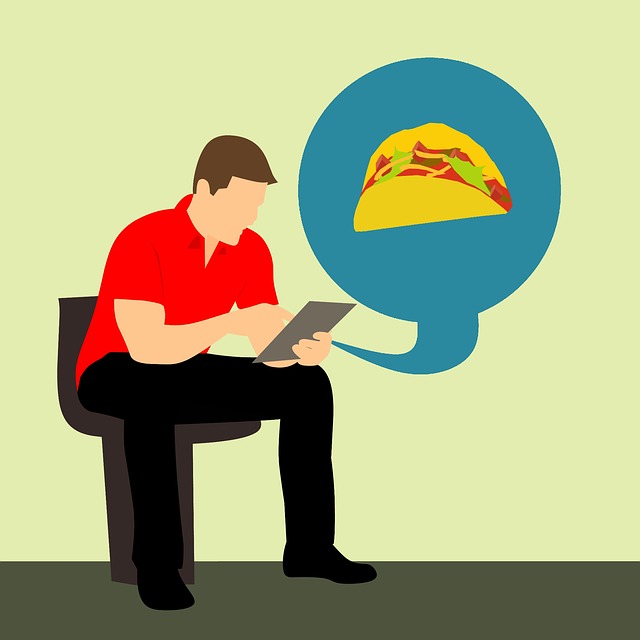[This post will soon be published in the class Zine from my Fall 2018 ANTH4417, Hidden Worlds of Food, class.]
Cyril: …I can quite understand your objection to art being treated as a mirror. You think it would reduce genius to the position of a cracked looking-glass. But you don’t mean to say that you seriously believe that Life imitates Art, that Life in fact is the mirror, and Art the reality?
Vivian: Certainly I do. Paradox though it may seem—and paradoxes are always dangerous things—it is none the less true that Life imitates art far more than Art imitates life. – Wilde 2014 [1891]
The midterm paper for The Hidden Worlds of Food was autoethnographic, based on a personal food journal, and the submissions were diverse. One thing that surprised me in the papers was the frequent mention of Taco Bell as a go-to source of inexpensive food. In this post, I don’t want to rehash the history of the fast food restaurant or the concept of McDonaldization. Rather, I want to hint at the dangers of consuming ideology and the effect of that consumption on imagined futures.
In 1993, the movie Demolition Man opened to luke-warm reviews. Demolition Man tells the story of police officer John Spartan, cryogenically imprisoned in 1996 and thawed in the beautiful dystopia of 2032 to catch a criminal from the past. By 2032, everything dangerous has been outlawed and society is so tightly governed by its own institutional structures that the police have no idea of how to capture a villain from the 1990s. In this world, the only restaurant is Taco Bell.
“You do not realize that Taco Bell was the only restaurant to survive the franchise wars. Now all restaurants are Taco Bell.” -Lenina Huxley to John Spartan, in Demolition Man (Lenkov et al. 1993).
In 2018, on the twenty-fifth anniversary of Demolition Man, Taco Bell released a trailer for a fake film (Taco Bell: Web of Fries) using the “franchise wars” to market their nacho fries. Also in 2018, Taco Bell unveiled an upscale pop-up restaurant: Taco Bell 2032: The Demolition Man Experience. Given that Taco Bell and GM sponsored the original release of Demolition Man with up to $15 million in funds, this may be less about new advertising and more about continuing a long-running ad campaign.
Flash back to 1945. In that year, science fiction author Arthur C. Clarke imagined the telecommunications satellite (Tweney 2011). Science fiction has also predicted the tablet computer, smart home, self-driving car, YouTube instructional videos, and more. As Wilde noted, life imitates art. Our imagined futures have a way of taking root as a product of the ideologies that we consume today. The question is, do we consume those ideologies critically? Or are we just eating from the trash can of ideology (Žižek 2012)? The ideology of Demolition Man’s future—a technologically mediated surveillance state—sounds today less like science fiction and more like news.
In their papers, students referred to Taco Bell as fast food, and implied that it is less than real. Baudrillard addresses this point in discussing Disneyland. “Disneyland is there to conceal the fact that it is the “real” country, all of “real” America, which is Disneyland (just as prisons are there to conceal the fact that it is the social in its entirety, in its banal omnipresence, which is carcerial.) Disneyland is presented as imaginary in order to make us believe that the rest is real, when in fact all of Los Angeles and the America surrounding it are no longer real, but of the order of the hyperreal and of simulation” (Baudrillard 1983:25). If Taco Bell isn’t real food, then at this point what is?
I think this is a challenge for anthropology: to imagine and document just and sustainable futures. To do that, we probably need to pay more attention to what we are consuming today, while also working in art, film, activism, writing, and other fields to collaboratively invent new realities.
Baudrillard, J. (1983). Simulations. Los Angeles: Semiotext(e). 154pp.
Lenkov, P. M., Reneau, R., & Waters, D. (1993). Demolition Man. USA: Warner Brothers.
Tweney, D. (2011). May 25, 1945: Sci-Fi author Predicts the Future by Inventing It. Retrieved from https://www.wired.com/2011/05/0525arthur-c-clarke-proposes-geostationary-satellites/
Wilde, Oscar. 2014 [1891]. The Decay of Lying in Intentions. Published online in Project Gutenberg. http://www.gutenberg.org/files/887/887-h/887-h.htm
Žižek, S. (2012). Pervert’s Guide to Ideology. Zeitgeist Films.

I believe that the movie was edited to use Pizza Hut (same parent owner as Taco Bell) as the winner of the franshise wars to maximize the product placement fee.
Er, I should have included “in the European Release of Demolition Man”.